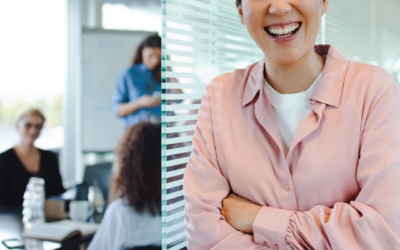3 Daily Habits to Maintain Hope in the Face of Adversity
An optimistic mindset is essential right now, and these 3 phrases help provide the proper lens of learned optimism
By Michael Miller – April 6th, 2020

This will not last forever.
This is not changing everything.
Your effort will make a difference.
These three phrases form the basis of Martin Seligman’s theory of learned optimism, a guide for how to frame adversity that has been found to effectively reduce anxiety. Personally, I’ve found it to be very helpful in the current crisis. Before we explore each of these phrases a little more, let’s clarify a common misconception what optimism is – and what it isn’t.
Learned optimism isn’t passively ‘hoping for the best’
Optimism isn’t blindly hoping for the best. In fact, being “optimistic” in a passive, naïve sense – without real effort – would only get us deeper into trouble. The type of optimism that will help us is this skill of optimism: intentionally practicing an optimistic mindset. This effortful optimism is about framing adversity in a healthy, realistic way and taking ownership of finding solutions – exactly what we need right now.
This “frame,” Seligman argued, is formed by a person’s explanatory style, which he abbreviated as the 3 Ps.
Seligman’s 3 Ps of optimism during adversity
The first one is permanence. Repeat after me: This will not last forever. In times of high stress and uncertainty, it can be easy to forget this. Remind yourself every day: This will not last forever.
The second one is pervasiveness: This is not changing everything. This is probably the most difficult in this current crisis, because it is certainly impacting many, many areas of everyone’s life. Still, it’s not ruining everything. Remember to express gratitude for what you do have, even in these difficult times, and for the choices you CAN make to focus on yours and others’ wellbeing.
The last one, and quite possibly the most important, is personalization. Your effort will make a difference. You are still in the driver’s seat of your thoughts, feelings and actions, and what you do will make a difference. We know what we need to do to slow the spread of the virus. It isn’t ideal for anyone, but at least we know what we have to do, and that our individual and collective effort will make a difference.
Thinking about adversity from this lens will give us the fuel we need to keep going. Share the message with as many people as you can.
This will not last forever.
This is not changing everything.
Your effort will make a difference.
Want more emotional intelligence tips and strategies? Join one of our free or low-cost Growing U sessions: 6seconds.org/grow.
What’s new in emotional intelligence?
The Power of Gratitude: How Focusing on the Good Changes Your Brain—and Your Life
Gratitude is more than a warm feeling. It’s a practice that changes how we relate to the world. How can you tap into the power of gratitude?
Stressed Out? 4 EQ Strategies for the End of the World (or Just a Bad Week)
Feeling overwhelmed? Discover four emotional intelligence strategies—from managing spirals to joy-snacking—that can help you navigate stress and tough times with clarity, resilience, and care.
How to Control Emotions Without Shutting Them Down: A 3-Step Process That Actually Works, and the Neuroscience Behind the Technique
How can you control your emotions without shutting them down? The answer is Navigating Emotions. Discover a science-backed 3-step VET method to manage emotions with emotional intelligence, reduce reactivity, and build resilience. Based on neuroscience and the Adaptive Theory of Emotions.
How to Thrive in a BANI World: Insights from the World’s Largest Study of Emotional Intelligence
Emotional intelligence is declining just when we need it most. Drawing from the the world’s largest EQ study, this article explores why and how to reverse the trend—with women leading the way toward emotionally intelligent leadership.
Why True Leaders Must Think Like Trainers: How to Use Emotional Intelligence to Excel in a Leadership Role
Discover how Emotional Intelligence and a trainer’s mindset can transform leadership, fostering growth, autonomy, and long-term success.
Making EQ Visible = Making Impact
Discover how making emotional intelligence visible can inspire a more connected, compassionate world. From quiet moments of reflection to bold acts of connection, practicing EQ creates ripples of positive change.
- Pursue Noble Goals in the Six Seconds Model of EQ - July 29, 2023
- Increase Empathy in the Six Seconds Model of EQ - July 26, 2023
- Exercise Optimism - July 24, 2023






